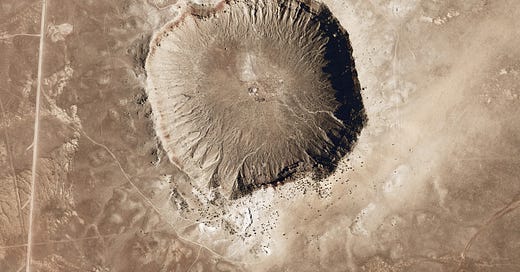Conflict Residue and Reputation
The "end" is not always that for those on the harmed side of interactions
In disputes and conflict, a crisis or scandal, we often don’t think long and hard enough, intelligently enough of the conflict residue we leave behind and how it impacts — and it does — our reputation.
Yes, the residue.
Sidenote: When I looked for an image of “residue” on two different websites, what mostly came up was a combination of trash bags and trash cans. Symbolic?
When a negative interaction or ongoing experience has occurred because of our thinking and actions, even if that interaction or relationship (professional or personal) stops, the negative perceptions or reality are still logged into other people’s memories.
When people conduct themselves selfishly, the odds are higher that is going to leave a mark of offense and pain on others. The more selfishly we interpret the acceptance of our thinking and actions, the more of a destructive habit it becomes in the world and more self destructive it becomes to our character and ongoing behavior.
Yes, sometimes, conflict residue results due to perception alone. Absolutely. No argument. Yet, that happens much less than factual, objective mistreatment and the arrogant reactions offenders have about acting that way.
Even at the perceived “end” of a dispute, conflict, crisis or scandal, there is highly likely to be residue of emotional and psychological harm from the misbehavior committed against others. That residue can stick with people for varying lengths of time.
Years. Decades. A lifetime.
That can leave a crater in someone’s psychology. And in the other person’s reputation.
In situations like these, most of the time, people don’t believe that their wide-spread reputation and thus their life will suffer for their selfishness and aggression towards others. And whether in a one-on-one interaction or relationship, they don’t seemingly care how they are judged. They normally rationalize it away after all. They know better. They just don’t choose to “do” better.
These people might very well be respected and loved by others. They might be supported. Even enabled if their behavior is known. That happens too.
Facts and evidence don’t seem to matter to some character-deficient people and their supporters.
The conflict residue, the hurt that has been registered and the reputation rot of the person exist and continue. Maybe one day that comes to a head and they are exposed and the tidal wave of due, moral punishment hits them.
Even if it doesn’t, and it often doesn’t occur, the character rot, attitude dysfunction and reputation damage remains something people don’t escape.
Michael Toebe writes “Reputation Notes” and is the founder and specialist at Reputation Quality, a practice that serves and assists successful people and organizations in further building reputation as an asset and responsibly, ethically protecting, restoring or reconstructing it.
Free subscribe to Reputation Notes or if you prefer, become a paying subscriber for special features.





